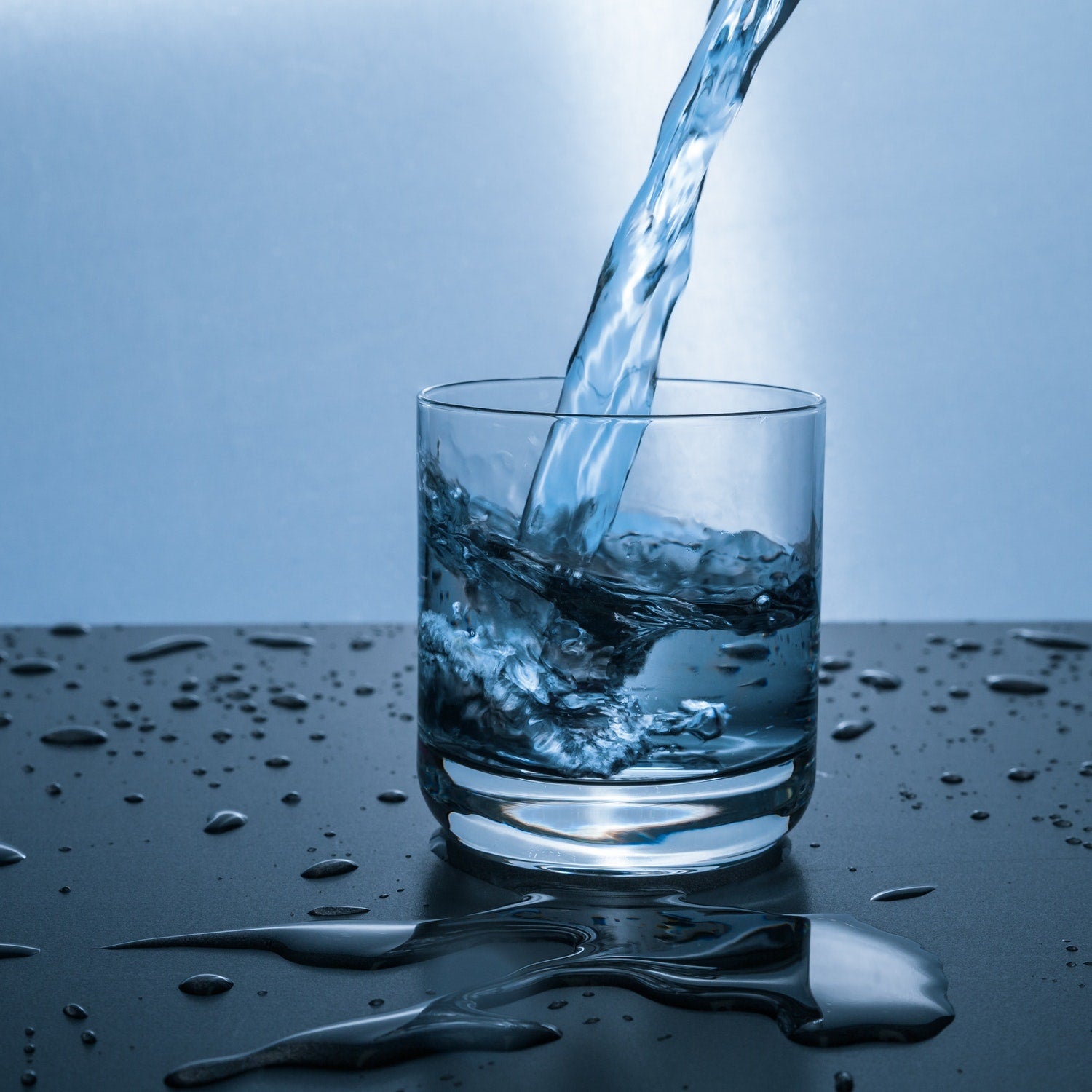

· By Josh Christensen
You Need Keto Electrolytes On a Keto Diet: Here's Why
If you think the keto diet is just a passing trend, think again.
Evidence of physicians prescribing metabolic fasting can be documented as early as 500 BC. Though the "buzzword" has exploded onto the mainstream nutrition scene in the last 15 years, it's been recognized as a treatment for certain conditions since the 1920s.
If you've been losing weight or enjoying more energy on the keto diet, your work isn't done. Certain nutritional considerations need to be made to ensure your ketosis remains effective, and that your body is receiving the essential vitamins and minerals it needs to function.
Read on to learn more about supplementing with keto electrolytes. It could be exactly what you're missing!
How the Keto Diet Works
In a traditional diet, carbohydrates get broken down into simple sugars. After they are absorbed in the bloodstream, the sugars (in the form of glucose) move into the cells to be utilized for energy. This prevents the body from turning to proteins (muscle mass) for its source of fuel.
Rather than depending on carbohydrates to consistently create energy, the keto diet readjusts one's nutritional focus and replaces the source of its fuel. To put it simply, keto is a low-carb, high-fat diet.
However, this energy needs to come from somewhere. When you replace carbohydrate intake with fat, the body must adapt to burn that fat for energy. This is the phase known as "ketosis."
When the body is in ketosis, it can turn fat into "ketones"-- molecules that move out of the liver and fuel the brain. Since the brain can't derive energy or benefits from unconverted fat, it craves ketones in the absence of glucose. These ketones help to grow and strengthen neural pathways and increase GABA (gamma-Aminobutyric acid neurotransmitter) in the brain.
There are a few versions of the ketogenic diet that are programmed around one's nutrition or performance needs. These are:
- Standard ketogenic diet (SKD) - Traditional low carb (10%), moderate protein (20%) and high fat (70%) diet
- Cyclical ketogenic diet (CKD) - Cycles in periods of high carb days
- Targeted ketogenic diet (TKD)- Adds carbs around workouts during training days
- High protein ketogenic diet- low carb (5%), higher protein (35%), and high fat (60%)
Consuming too much protein may interfere with ketosis, as the body will turn to protein to convert it into glucose in the absence of carbohydrates. Monitoring macronutrient intake will be the key to the diet's success.
The keto diet is an effective and popular approach to fat loss, as body tissue burns fat for energy. Additionally, many participants find that they eat less on the keto diet, or that the foods that they eat keep them satiated.
The Role of Electrolytes
Electrolytes are the essential minerals that keep one hydrated by regulating water distribution to the cells. They're also responsible for:
- Regulating muscle contractions
- Balancing pH levels
- Controlling nervous system function
- Balancing blood pressure
- Rebuilding damaged tissue
- Carrying messages to cells
On a cellular level, electrolytes conduct electricity when they mix with water. This is important because muscles and neurons require the movement of electrolytes in fluids in order to function.
Necessary electrolytes in the human body include:
- Sodium - important for blood pressure and muscle contractions
- Potassium - flushes out excess sodium and prevents muscle cramps
- Calcium - plays a direct role in vascular contraction and bone health
- Bicarbonate - an alkali in the pH buffering system
- Magnesium - involved in nerve function, energy production, protein synthesis, blood pressure regulation, and blood sugar control
- Chloride - balances fluid inside and outside of your cells
- Phosphate/Phosphorus - required for the formation of bones, teeth
When the body sweats or is digesting food low in electrolytes, it may experience an electrolyte imbalance. Excreting electrolytes through one's waste is also a very normal part of the cycle-- though the hormones like insulin, aldosterone, renin, angiotensin, and antidiuretic hormone are always hard at work balancing the load. The level of one's electrolytes is always in flux.
Signs of Keto Electrolyte Deficiencies
Electrolyte deficiencies are common for athletes or those functioning on a keto diet. The "Keto flu" -- or, the flu-like symptoms that accompany dehydration and electrolyte deficiency is a common phase of a keto diet as the body adjusts to new forms of energy.
Common symptoms include:
- Headaches
- Muscle cramping
- Chronic fatigue
- Insomnia
- Brain fog and dizziness
- Diarrhea and digestive discomfort
- Change in blood pressure
- Constipation
- Skin rash and sensitivities
These symptoms should not be ignored, and will usually require a second opinion by your physician to rule out other potential causes of distress. However, an electrolyte deficiency is likely the cause if you are transitioning into the keto lifestyle.

Electrolytes On Keto
Those participating in a low-carb or keto diet need to understand that their elimination of carbohydrates will impact the amount of electrolytes consumed in the body. Foods like fruits and vegetables that are very high in electrolytes are discouraged on a keto plan, which limits the possible source of these essential minerals. Additionally, packaged process foods that are usually off-limits on the keto diet may unknowingly be the source of electrolytes for so many.
Additionally, a body in ketosis will process electrolytes differently as it produces less insulin. Low insulin has a diuretic effect on the body, which means you lose many more vitamins and minerals to waste.
Dehydration is also quick to occur, which people usually attempt to correct by consuming vast quantities of water. Unless the water contains added electrolytes, this only contributes to the dilution and excretion of essential electrolytes.
Additionally, the less insulin a body produces, the more the body signals to excrete sodium and potassium by the kidneys. When you lose sodium and potassium at such a rapid rate, your hormonal, muscular, and neural systems may quickly feel out of whack.
Long-term electrolyte deficiencies put you at risk for coma, seizures, and cardiac arrest. It's important to address an electrolyte quickly and efficiently while your body has the ability to recover.
Types of Electrolytes You Should Supplement
The most important electrolytes to keep in mind are sodium, magnesium, potassium, and calcium. Most people will not have to worry about phosphate deficiencies, and chloride is a companion of sodium. The body will take care of synthesizing bicarbonate!
If you are eating a traditionally keto diet, it's recommended that you mindfully include electrolyte consumption into your meal planning. This is traditionally done through powder form, or by intake of keto-friendly snacks like pickle juice, soup, salt, salmon, spinach, and pumpkin seeds.
If food changes aren't palatable or impactful to your electrolyte deficiency, it's time to explore your options for keto electrolyte supplements. The right electrolyte supplement for keto will be convenient, quickly absorbed, affordable, and palatable.
Genius Gourmet offers a Keto Electrolyte Blend made with an effective combination of:
- Vitamin D3
- Vitamin B6
- Calcium
- Magnesium
- Manganese
- Chloride
- Sodium
- Potassium
- L-leucine
Six major electrolytes go to work rehydrating the body and improving muscle and nerve function at a cellular level. Recover faster with supplementation!
How to Supplement With Electrolytes
Rember-- electrolyte replenishment isn't a one-and-done deal. As you are constantly losing fluids through sweat evaporation and waste excretion, your electrolyte levels will need to be monitored and replaced. Consider getting evaluated through a blood or urine test if you need a physician's recommendation.
Although "keto flu" symptoms can be a reliable indicator of an electrolyte imbalance, you shouldn't wait for symptoms like cramping and dizziness before managing your electrolytes. Rather than letting your body run on empty, consider your activity levels and the foods you are eating before taking an easy electrolyte capsule.
The Genius Gourmet Keto Electrolyte Blend can be taken with water every 30-60 minutes, depending on your amount of physical activity or nutritional intake.
Rather than having to mix up a non-keto smoothie or drink in glassfuls, the Keto Electrolyte Blend is available in convenient capsule form. Replenish your electrolytes without additional tools or ingredients!
Remember-- keto electrolyte supplements aren't just for athletes! They're important for anyone on the keto diet, including a keto 30-day challenge or a general wellness approach. Everyone is susceptible to electrolyte deficiencies during this change.
Fuel Up With Keto Electrolytes
In order for your body to feel safe, you need to keep it nourished. Fueling your body with essential nutrients and minerals will ensure that it can recovery during its state of ketosis. Keto electrolytes are key!
It's possible to avoid uncomfortable symptoms while your body adapts to your new lifestyle. Support your body and remain hydrated with a Keto Electrolyte Blend from Genius Gourmet. Let the convenient capsule form keep you focused on real life.


